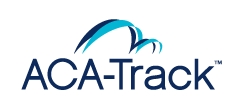Essential Information for International Students Planning to Study in the United States
The United States has long been a preferred destination for international students seeking world-class education and diverse cultural experiences. With its prestigious universities, cutting-edge research facilities, and extensive academic programs, the U.S. offers a unique environment for students to excel both academically and personally. For prospective students, understanding the essential information about studying in the United States is crucial for a successful and enriching experience.
A study in the united states involves careful planning, from selecting the right institution to understanding visa requirements and financial obligations. International students must navigate admission processes, standardized testing, and documentation to ensure eligibility for programs ranging from undergraduate to postgraduate levels. Being well-prepared enhances the chances of a smooth transition and maximizes the benefits of studying abroad.
Choosing the Right University and Program
The U.S. hosts thousands of universities and colleges, each offering diverse programs in fields such as science, technology, engineering, business, arts, and humanities. Selecting the right university is one of the most critical decisions for international students. Factors to consider include academic reputation, program curriculum, faculty expertise, campus facilities, and location.
Students should also evaluate support services, extracurricular opportunities, and networking options, as these contribute significantly to both personal growth and career development. Researching universities thoroughly and attending virtual or in-person information sessions can provide valuable insights into the best fit for individual goals.
Understanding Admission Requirements
Admission to U.S. universities typically requires submitting academic transcripts, letters of recommendation, a statement of purpose, and standardized test scores such as the SAT, ACT, GRE, or GMAT depending on the program. International students may also need to demonstrate English proficiency through TOEFL or IELTS exams.
Meeting application deadlines is essential, as many programs have strict timelines. Early preparation ensures that all documentation is complete, enhancing the likelihood of acceptance and reducing stress during the admission process.
Visa Application and Legal Considerations
Obtaining a student visa is a key step for international students. The F-1 visa is the most common for academic studies, while the J-1 visa is typically used for exchange programs. Applying for a visa involves submitting an I-20 form issued by the university, completing the DS-160 application, attending an interview at the U.S. embassy or consulate, and providing financial documentation.
Understanding the visa conditions, such as restrictions on work and travel, is critical for compliance and avoiding legal complications. Universities often provide guidance and resources to help students navigate the visa process efficiently.
Financial Planning and Scholarships
Studying in the United States can be expensive, and careful financial planning is necessary. Tuition fees, living expenses, health insurance, and transportation costs must be considered. Many universities offer scholarships, grants, and assistantships for international students, which can significantly reduce financial burdens.
Students should also explore external funding options, including government scholarships, private organizations, and educational loans. Budgeting wisely ensures that students can focus on their studies without undue financial stress.
Campus Life and Student Support
U.S. universities provide extensive support services for international students, including orientation programs, academic advising, counseling, and career services. Engaging in campus activities, clubs, and cultural events fosters social connections and helps students adapt to a new environment.
Health and wellness services, along with resources for accommodation and transportation, contribute to a secure and fulfilling university experience. Taking advantage of these services helps students maintain a balanced and productive lifestyle.
Work Opportunities and Practical Experience
International students on F-1 visas may work on-campus up to 20 hours per week during semesters and full-time during breaks. Optional Practical Training (OPT) and Curricular Practical Training (CPT) programs allow students to gain hands-on experience in their field of study, enhancing employability upon graduation.
Internships, research projects, and volunteer opportunities further enrich learning, providing valuable exposure to professional environments and American work culture.
Conclusion
Studying in the United States offers international students unparalleled opportunities for academic excellence, personal development, and career growth. By carefully researching universities, understanding admission and visa requirements, planning finances, and leveraging campus support services, students can maximize their experience and achieve their educational goals. A well-prepared approach ensures that studying in the U.S. is both rewarding and transformative, opening doors to a future filled with global opportunities.







